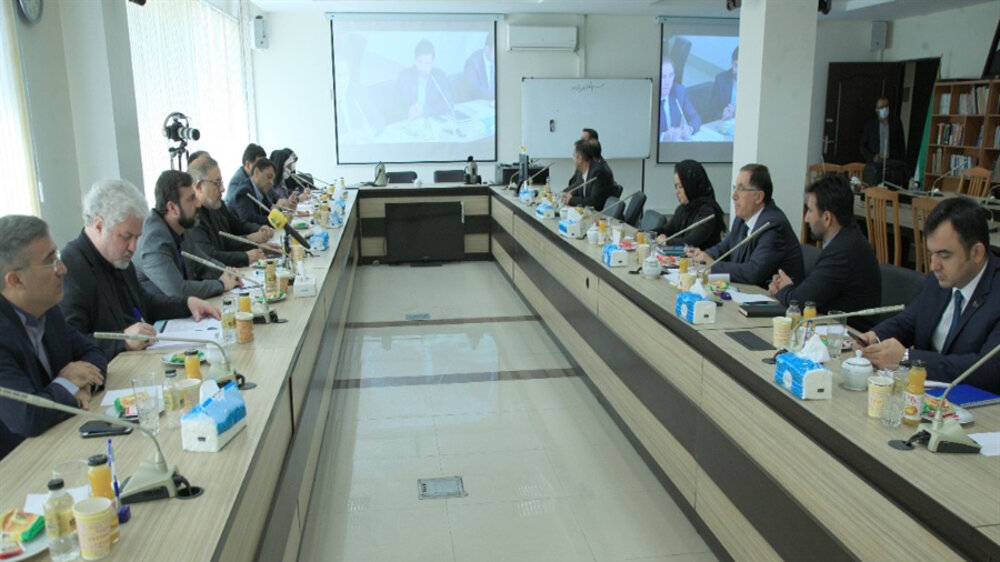TEHRAN- Unilateral sanctions placed on countries by certain arrogant Western countries have been harshly condemned as “crimes against humanity” by the secretary of Iran's High Council for Human Rights.
The comments were made by Kazem Gharibabadi at a meeting he had on Monday in Tehran with Eref Malkoc, the Turkish head of the Organization of Islamic Countries' Ombudsman Association (OIOCA).
The Iranian human right chief praised the Turkish government for its steadfast resistance to such prohibitions, calling unilateral penalties against countries “crimes against humanity and a kind of economic war.”
Such sanctions are unlawful and in violation of the principles of human rights, he said, adding sanction also have an impact on Iran's neighbors.
Elsewhere in his remarks, Gharibabadi discussed the subject of terrorism and said that Iran was its largest victim.
“It is necessary for those countries who are faced with the phenomenon of terrorism to engage in serious cooperation in order to fight this ominous scourge. Due to common terrorist threats posed to Iran and Turkey, the two countries need to bolster cooperation in fighting terrorism,” he remarked.
In addition, Gharibabadi criticized Western nations for adopting contradictory approaches in countering terrorism, saying that “on one hand, they accuse Iran of violating human rights, but on the other, they martyr 17,000 innocent Iranian citizens through terrorism or violate the rights of millions of Iranians through imposition of unilateral sanctions and jeopardize their right to life.”
During a joint news conference with Turkish President Recep Tayyip Erdogan in Tehran last month, President Ebrahim Raisi of Iran stressed the need to preserve the security on Iran's shared border with Turkey. He said that terrorism must be combated in all its forms.
“Terrorism might assume different names. However, terrorism translates into endangerment of people’s security and must be fought with no matter its name, so that security can be provided for the borders,” Raisi stressed.
Malkoc, on his part, emphasized the friendly relations between the governments of Turkey and Iran and said that the two nations share a great deal of historical, economic, political, and cultural similarities.
He went on to say that human rights should be a special focus of ties between Iran and Turkey.
He said that terrorism that has been nurtured by some states has afflicted Muslim nations, stressing that Tehran and Ankara work well together to combat the issue.
The Turkish official reiterated his country's fundamental position against unilateral restrictions and said certain governments use sanctions as a weapon of war.
U.S. sanctions have affected both Iran and Turkey. After unilaterally withdrawing from the 2015 nuclear agreement in May 2018, Donald Trump reinstated sanctions against Tehran and added new ones within his policy of “maximum pressure” against the Islamic Republic.
Turkey has also been subject to bans or sanctions threats from the U.S. due to a number of concerns, including Ankara's purchase of sophisticated Russian S-400 missile defense systems.


No comments:
Post a Comment